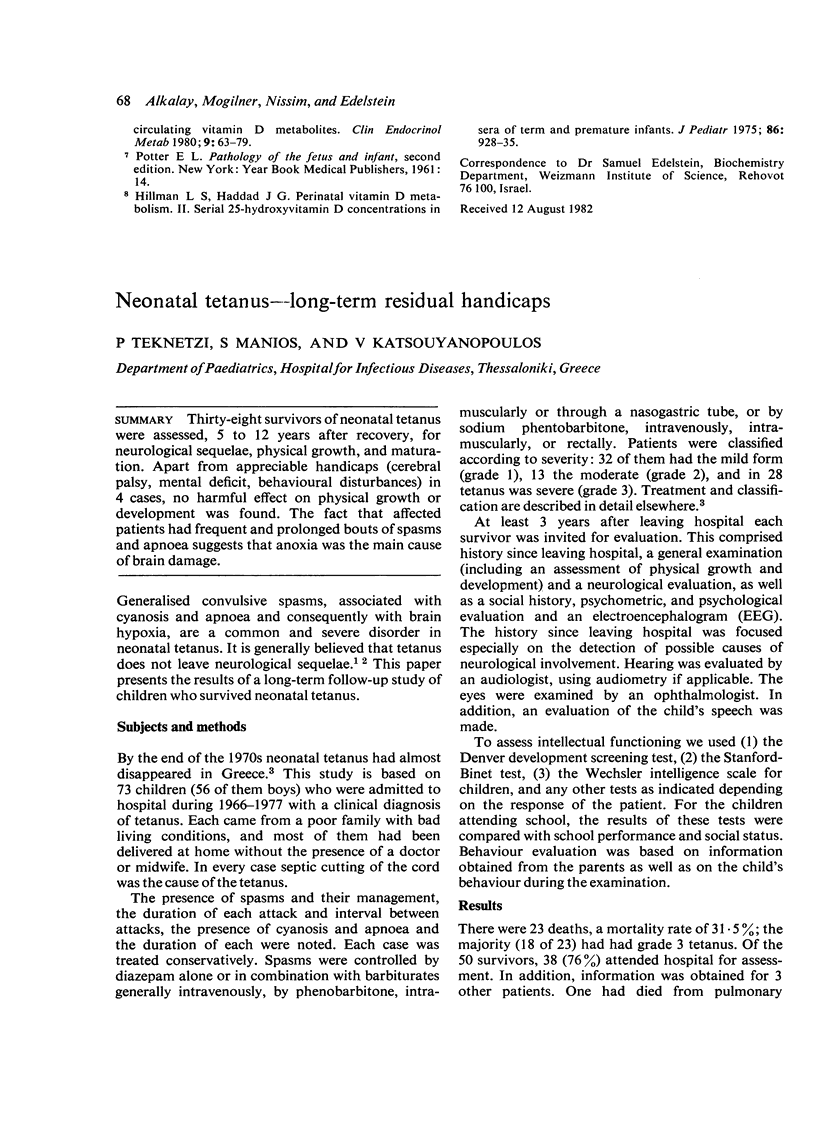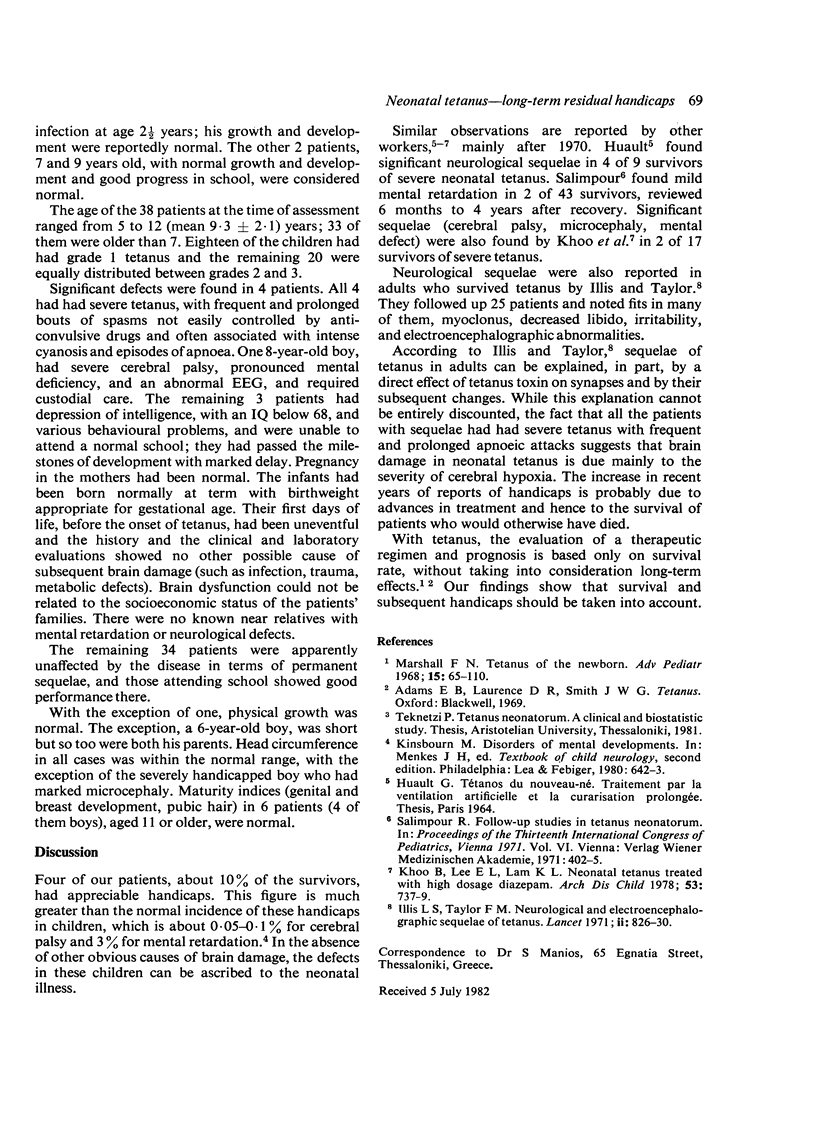Abstract
Thirty-eight survivors of neonatal tetanus were assessed, 5 to 12 years after recovery, for neurological sequelae, physical growth, and maturation. Apart from appreciable handicaps (cerebral palsy, mental deficit, behavioural disturbances) in 4 cases, no harmful effect on physical growth or development was found. The fact that affected patients had frequent and prolonged bouts of spasms and apnoea suggests that anoxia was the main cause of brain damage.
Full text
PDF

Selected References
These references are in PubMed. This may not be the complete list of references from this article.
- Khoo B. H., Lee E. L., Lam K. L. Neonatal tetanus treated with high dosage diazepam. Arch Dis Child. 1978 Sep;53(9):737–739. doi: 10.1136/adc.53.9.737. [DOI] [PMC free article] [PubMed] [Google Scholar]


